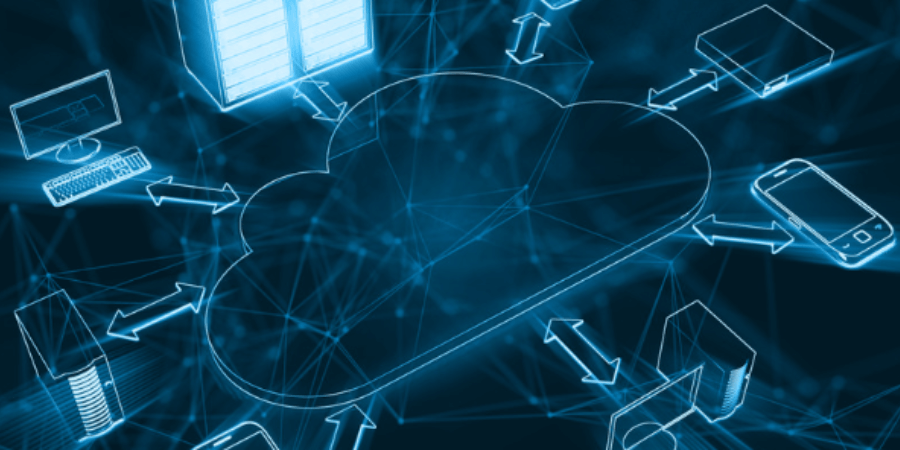In the rapidly evolving world of technology, decentralized computing has emerged as a revolutionary paradigm, shifting away from traditional centralized data centers to a more distributed framework. This shift not only promises enhanced efficiency and scalability but also paves the way for a new era of digital autonomy and security. In this blog post, we’ll delve into the essence of decentralized computing, explore its benefits, challenges, and its potential impact on various industries.
What is Decentralized Computing?
Decentralized computing is the process of distributing computational resources across multiple nodes or devices, which are not subject to control by a single entity. Unlike centralized computing, where a single server or cluster handles multiple tasks, decentralized computing leverages a network of independent devices to process and manage data. This approach is akin to how blockchain technology operates, where each node in the network works independently but in unison towards a common goal.
Key Components of Decentralized Computing
-
Blockchain Technology: At the heart of decentralized computing lies blockchain technology, renowned for its role in cryptocurrency systems like Bitcoin. Blockchain provides a secure, transparent method for recording transactions and managing data across a dispersed network.
-
Edge Computing: Edge computing is a decentralized model where data processing occurs near the data source or at the edge of the network. This reduces latency, improves response times, and decreases the bandwidth needed for data transfer.
-
Peer-to-Peer Networks: Peer-to-peer (P2P) technology allows computers to connect and communicate directly with each other without a central server. This model is crucial for decentralized applications (DApps) and services.
Advantages of Decentralized Computing
-
Enhanced Security: By distributing data across multiple nodes, decentralized computing reduces the risk of cyberattacks and data breaches. The decentralized nature of blockchain makes it extremely difficult for attackers to manipulate data.
-
Improved Data Privacy: Decentralized systems give users more control over their data. Unlike centralized platforms, where a single company can access or control user data, decentralized systems ensure that data is kept private and secure from unauthorized access.
-
High Availability and Fault Tolerance: Decentralized networks are less prone to failures. If one node goes down, others in the network can take over, ensuring continuous service and network resilience.
-
Scalability: As demand increases, decentralized systems can scale more effectively than their centralized counterparts. Adding new nodes to the network can enhance computational power and storage capacity without a significant overhaul of the existing infrastructure.
Challenges in Decentralized Computing
-
Complexity in Management: Managing a decentralized network can be more complex than traditional systems. Coordinating and synchronizing across numerous nodes requires advanced algorithms and robust network protocols.
-
Resource Efficiency: Decentralized computing can sometimes lead to inefficiencies, especially in terms of resource usage. Redundant storage and computational tasks across multiple nodes can increase overall resource consumption.
-
Latency Issues: For certain applications, particularly those requiring real-time data processing, the inherent latency in communication between decentralized nodes can be a drawback.
-
Regulatory and Legal Challenges: The decentralized nature of these networks can complicate compliance with data protection regulations, which are typically designed around centralized models of data management.
Impact on Industries
Decentralized computing is set to transform a variety of sectors:
-
Finance: Decentralized finance (DeFi) uses this technology to create open, accessible, and inter-operable financial services platforms, from lending and borrowing platforms to predictive markets and asset trading without traditional financial intermediaries.
-
Healthcare: Decentralized health records can empower patients to control their medical data and share it securely with healthcare providers, potentially leading to more personalized and timely medical care.
-
Supply Chain: Distributed ledgers can provide transparent tracking of goods and materials, ensuring authenticity and reducing fraud in supply chains.
Conclusion
The journey towards fully realizing the potential of decentralized computing is still underway, with ongoing research and development needed to tackle its challenges. However, its promise of a more secure, efficient, and equitable digital world makes it an exciting field to watch. As technology continues to advance, decentralized computing could well become the backbone of a new digital infrastructure, supporting an ever-more connected and decentralized future.
In conclusion, decentralized computing is not just a technological shift but also a cultural one, advocating for greater user empowerment and security. The road ahead is complex but the potential benefits could redefine our digital landscape.




